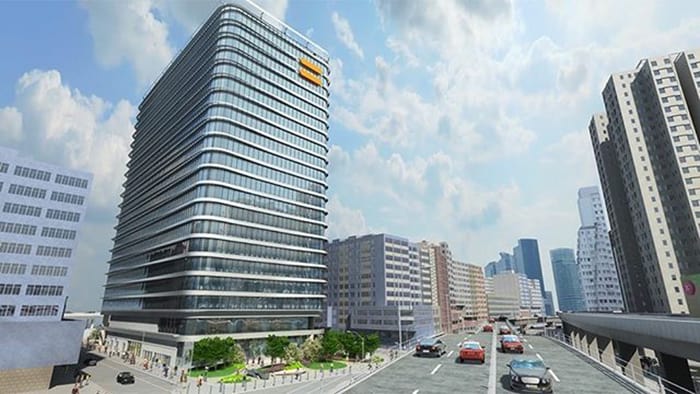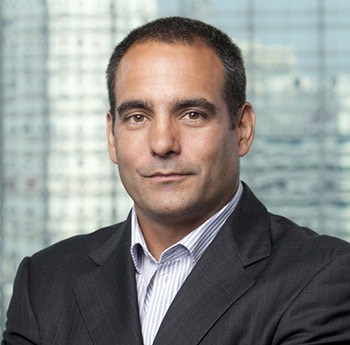
PAG bought Mapletree Bay Point for around $1.1 billion earlier this year
Less than two years after raising $1.9 billion for Secured Capital Real Estate Partners VI fund (SCREP VI), Hong Kong-based alternative investment manager PAG has begun raising fund for its next opportunistic vehicle, according to market sources cited in a report by PERE.
The investment management firm led by Weijian Shan is said to have set a target of at least $2 billion for SCREP VII, which reportedly was launched two months ago and aims to invest in high-yielding real estate projets across Asia, but with a particular focus on Japan, where the managers of the Secured Capital series are based.
PAG has yet to make a public statement regarding this latest initiative and company representatives reached by Mingtiandi declined to comment on the fund-raising report.
The news of the investment manager’s bullish target for its opportunistic strategy comes shortly after PAG was said to be nearing a $2.25 final close on its second core plus/value-add PAG Real Estate Partners (PREP) II fund, as that vehicle closes in on its hard cap.
Taking Aim at Japan
As with its previous opportunistic fund, PAG is understood to be allocating 60 percent of SCREP VII’s investments to the land of the rising sun, with an emphasis on distressed situations. PAG, which bought out Tokyo-based Secured Capital in 2010, sees the experience of its Japan operation as providing an advantage when deploying capital, as it draws support from institutional investors globally.
Details of the the investors signing on or SCREP VII have yet to be released, however, Amsterdam-based fund manager Bouwinvest Real Estate Investors said last month that it had invested $100 million with PAG in Asia, although at least part of that funding has been channeled through the PREP II strategy.

PAG Real Estate’s Jon-Paul Toppino heads the SCREP strategy
The Canadian Pension Plan Investment Board has been another backer of PAG initiatives with Mingtiandi having previously revealed shortly after the Hong Kong private equity firm had closed on $1.2 billion in funding for SCREP VI, that CPPIB had taken an anchor stake.
A report released by the manager of the C$298 billion fund showed that CPPIB had committed $375 million to the vehicle, equivalent to approximately 20 percent of what turned out to be a $1.9 billion opportunity fund.
In its statement at the time, the manager of the Canadian pension fund had described SCREP VI as a “real estate investment vehicle focused on distressed debt and off-market acquisition opportunities in commercial real estate, primarily in Japan with additional opportunities in South Korea and China.”
After closing in September 2017, SCREP VI, which has been led by PAG Real Estate’s Jon-Paul Toppino, has allocated approximately 65 percent of its deployments to opportunistic property-related investments and distressed debt in Japan, as well as other opportunities in China and Korea, according to the firm.
New York-based asset advisory and fundraising services firm Park Hill Group, which assisted on SCREP VI and is currently helping with the raise of PREP II, will not be used as a placement agent for PAG’s latest SCREP offering, according to sources cited by PERE.
Snapping Up an Asset from Mapletree
The Hong Kong-based fund manager’s core-plus vehicle, PAG Real Estate Partners II, which market sources indicated reached a $1.5 billion first close around seven months ago, is understood to have provided the funds for PAG’s purchase of Mapletree Bay Point, from Mapletree Investments.
That deal saw the alternative investment manager acquiring the 660,301 square foot (61,344 square metre) prime office building in Kowloon East for a price reported to be at or below the HK$8.58 billion ($1.1 billion) asking price.
PAG, which has since renamed the asset as the International Trade Tower.made the acquisition after Mapletree had secured WeWork and HSBC as tenants.
In another deal just a month before that transaction, PAG sold a 50 percent stake in a Sydney office complex to Blackstone in a deal reportedly valued at A$400 million.
The Hong Kong fund manager had acquired its stake six months before through its Australian fund, MTTA, for A$300 million, earning a capital gain of A$100 million.
Leave a Reply